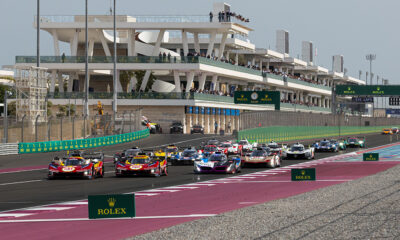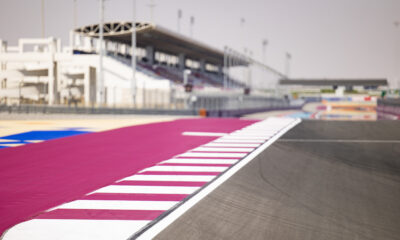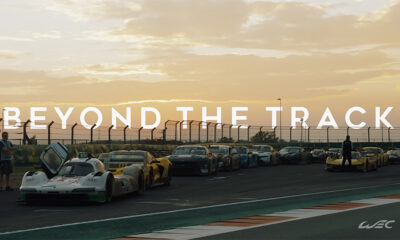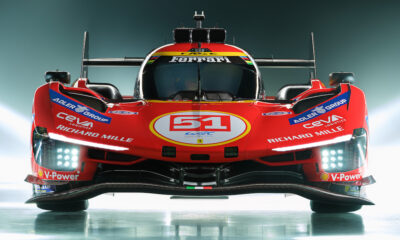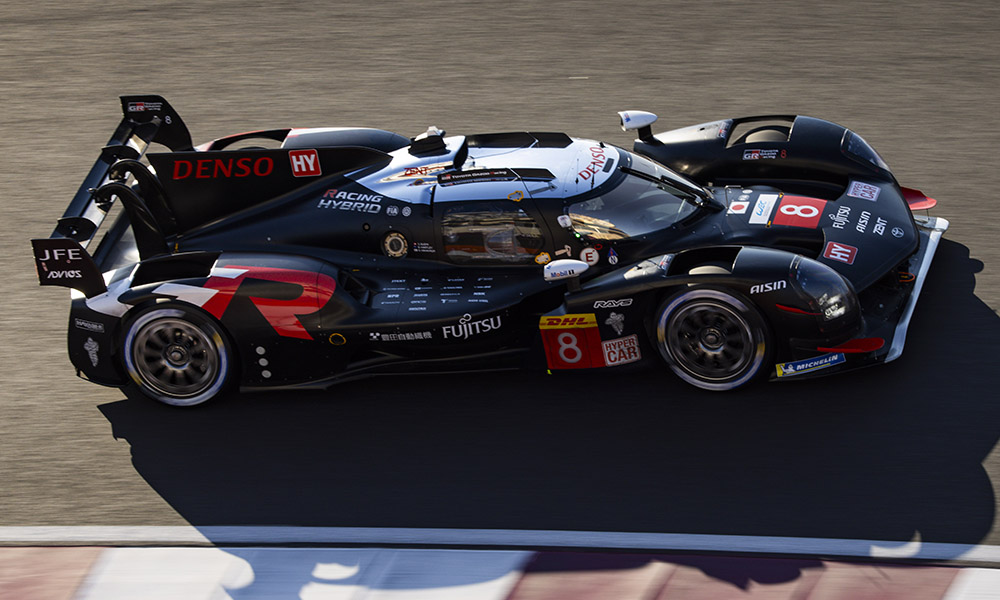
Julien Delfosse/DPPI
Toyota Gazoo Racing has suggested that the timeline for the introduction of hydrogen-powered cars in the top class of the FIA World Endurance Championship will dictate the lifespan of the GR010 Hybrid.
The Japanese manufacturer has long been one of the most vocal proponents of hydrogen being introduced to the WEC, having pioneered the use of internal combustion hydrogen power in Japan’s Super Taikyu series and unveiling the GR H2 Racing Concept at last year’s 24 Hours of Le Mans.
Last year, ACO President Pierre Fillon revealed that the planned future hydrogen category would include internal combustion cars as well as the fuel cell-powered machinery that the governing body has been developing with its own Mission H24 project.
However, the arrival of the class has already been pushed back to 2027, and Toyota’s Hypercar project leader John Litgens believes any further delay could prompt the Cologne-based outfit to evaluate whether a new chassis is needed in the interim.
Litjens said that the Toyota is currently in the process of weighing up how to spend its remaining EVO jokers on upgrading the GR010 Hybrid, first introduced in 2021, while also considering whether a successor would be needed prior to a future hydrogen car.
“For sure we will start discussing with the FIA about the next regulations,” said Litjens ahead of last weekend’s Qatar 1812km opener. “They are looking at getting hydrogen introduced, so we have to start looking at that as well.
“Nevertheless, we still have to keep our mind clear. At the moment we are at the top, but if the others progress a lot, we might not be there anymore, and if we start thinking then, it might be too late. We are thinking about what we could do.
“If [the new rules are] not delayed too much, we would hold on to the GR010 and make the steps up [with EVO jokers] if needed. If you do a full new car and in parallel a hydrogen car, it’s too much.”
Asked specifically how far the GR010 Hybrid could continue to race for, Litjens replied: “For sure up to 2027, I think it should be ok.
“If it takes until 2029 or 2030 [for the hydrogen rules to be introduced], then for sure we have to do something in between.”
Litjens said he is confident that hydrogen technology will be mature enough to allow Toyota to be competitive with a H2O-powered design as early as 2027, but suggested further delays could come as a result of the time needed to formalize the regulations.
“You have seen our colleagues in Japan are already running the Corolla [on hydrogen power in Super Taikyu] and they are already learning a lot there,” he said. “But it depends how the FIA comes up with the regulations.
“I know they are working on this quite hard, but we cannot wait until 2030 or later.”
Toyota Keen for Mixed Hydrogen/ICE Top Class
While the ACO has made it clear it wants cars entered in the hydrogen class to be able fight for outright wins in the WEC and at Le Mans from the outset, there remains some uncertainty over whether they would do so in their own class or as part of the existing Hypercar category.
Litjens made it clear that Toyota prefers the idea of having a mixed class initially as he feels it will take time for other manufacturers to commit to the developing technology.
“If you saw how long it took in the end to get a bigger field [in Hypercar], with hydrogen it’s the same,” said Litjens. “Maybe there are a few manufacturers that can come, but maybe only one or two cars because everything is new.
“I think the best thing is to run the Hypercars together with these [new] cars, and then at a certain point switch [to fully hydrogen].”
Litjens added he’s convinced that balancing conventionally-powered and hydrogen-powered machinery is possible, despite the current difficulties the ACO and the FIA have faced balancing theoretically similar LMH and LMDh cars in the current Hypercar class.
“Probably the most challenging thing for sure will be the weight of these cars,” he said. “But then with the Hypercars, they already limit a lot the aero and a lot of parameters on the car.
“If you have to balance this weight to get the same performance, maybe we can make the other things a bit more free.
“I think it’s doable. But we can only judge when we have more information.”




















